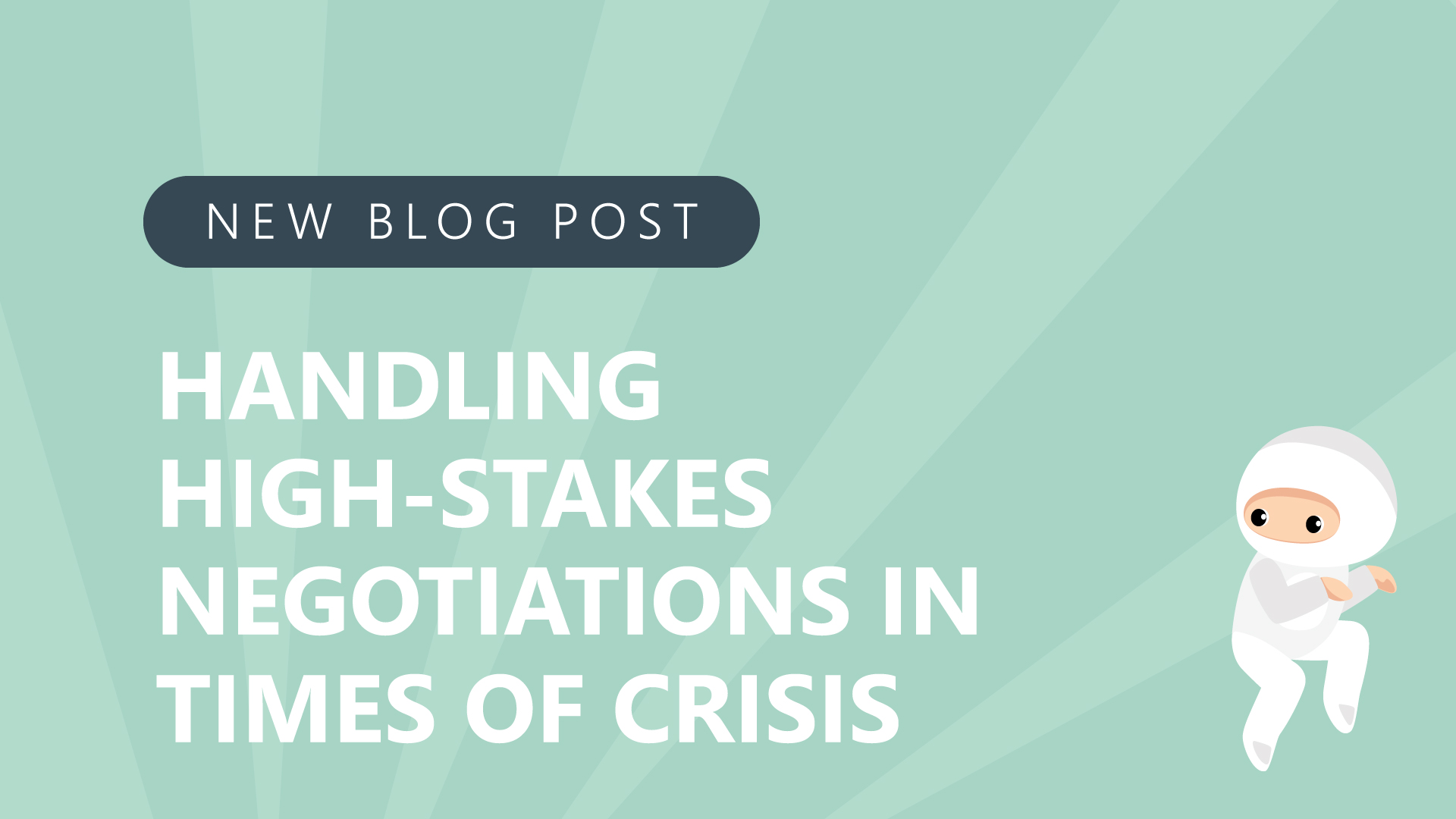It’s safe to say that the Coronavirus pandemic is a time of crisis for most businesses. The stakes are high—in some cases, the very survival of businesses—and it’s important to handle these high-stakes negotiations in times of crisis the right way.
On a recent episode of Negotiations Ninja, I was joined by negotiations experts Gary Noesner and Allan Tsang (with negotiator Shane Ray Martin kind enough to moderate) to answer questions about the challenges negotiators are facing.
With everyone’s fear levels higher than ever before, how do you stay calm and manage your emotions? How do you make the right decisions? The stakes are high—keep reading to learn a few strategies.
Use your time wisely during the Coronavirus Crisis
It’s important to be wise with time and use it to your advantage. You should take a moment to study the situation and get input from various sources. Then you must define and develop an effective strategy for moving forward.
Sometimes that looks like dragging things out to exacerbate your counterparts’ pain points and help them come to agreeable terms. In crisis or hostage negotiations, it may look like taking breaks to regroup and reassess a plan of action. Buy yourself some time.
Whatever you’re doing, it’s important to avoid making hasty decisions out of fear. Take time to plan a course of action—then carry it out. Failure to act can have negative consequences, so use your knowledge and experience to your advantage.
Rely on the systems you have in place
Allan Tsang points out that if you had a good system in place prior to the Coronavirus crisis, you should employ the same strategies now. He shared a poignant martial arts quote: “If you train as though you’re in a fight when you’re in a fight, you’re fighting as though you’re in training. It’s all about mindset.” Allan is often called into companies that are already in crisis—the global pandemic is just a larger scale of what you already know. So attack the crisis in the same way you always do.
Control your emotions
Confidence is contagious. Even if you walk into a negotiation uncertain, do your best to project confidence. It makes your counterpart more confident in you, in turn boosting your confidence. It’s a win-win. Be likable, genuine, and trustworthy. A good negotiator is compassionate and truly cares about people. You want to be the type of person someone enjoys working with because you are genuine and honest. It’s not always about what you say, but how you say it.
Do your due diligence
Be careful about what you do and how you do it. On the other side of this conflict, you still want relationships that you’ve built. You must be careful how you exert power and use leverage during times of crisis. The hope is that you’ll be able to work with those suppliers and customers again, so choose your words and actions carefully.
Ask powerful questions
Learn to ask the right questions. It allows both sides to see the real pain and the real solutions. Allow the other side to discover their problems by asking discovery questions. These are powerful questions that create “aha moments,” which release dopamine—then they want to dig deeper. Guide them in the direction you want to go and find an agreeable solution.
Want to learn more about negotiations in times of crisis, Check out Negotiations Ninja episode 134 for more of their expertise and guidance!

